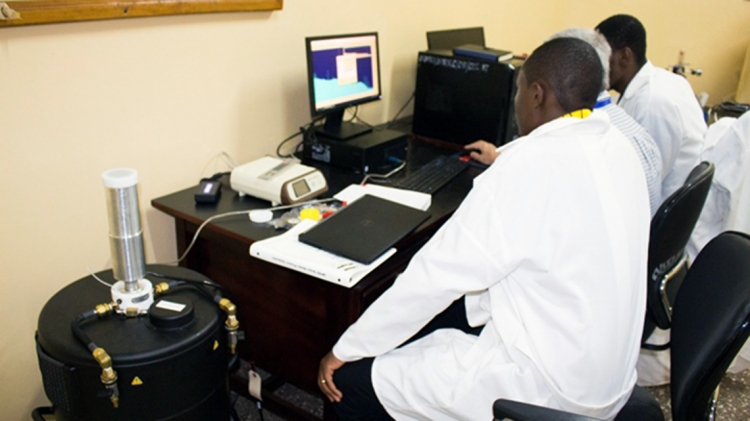Ghana has embarked on successful partnership ventures with a range of local and international partners following the establishment of its Technology Transfer and Marketing Centre (TTMC). The Centre, set up in 2014 with the support of a regional IAEA technical cooperation project1 on sustainability, provides advice and support to the Ghana Atomic Energy Commission (GAEC), focusing specifically on partnership building and resource mobilization. The objective of the Centre is to bridge the gap between GAEC as a research institution and the private sector, and to develop and enhance the marketing culture in GAEC.
"The Technology Transfer and Marketing Centre plays a major role in ensuring that GAEC is market-ready, and that our services are known and sought out by Ghana’s industries and business community,” said Professor Benjamin Nyarko, Director General of GAEC. “The Centre’s vision is GAEC’s vision – we want our scientists to provide effective, demand driven and timely research, so that GAEC can promote the application of nuclear science and technology for Ghana’s socioeconomic development, and at the same time ensure its own sustainability.”
Prior to the establishment of the TTMC, commercialization activities at the GAEC had many challenges. GAEC’s activities and services were not known to the private sector. Staff had little training to effectively market their innovations to local industries, and the Commission lacked a clear strategy to commercialize scientific innovations.
Today, the Technology Transfer and Marketing Centre is responsible for delivering training courses to GAEC stakeholders. These events have established new capacities in the Commission to build strategic, commercial partnerships across the country and throughout the region.
Using a participatory approach to identify problems and map solutions through to implementation, the TTMC has embarked on several initiatives. Directors and TTMC staff were trained in various business management programmes. All GAEC innovations and technologies were mapped, and commercialization focal persons were appointed in each GAEC institute to coordinate activities. GAEC policies and procedures, including criteria for staff promotion, were reviewed to include the commercialization of technology as well as private sector collaboration, and internal committees were set up to assist TTMC in identifying technology suitable for private sector uptake. The GAEC website was updated to highlight the activities of the Commission in research innovation of importance to the private sector.






